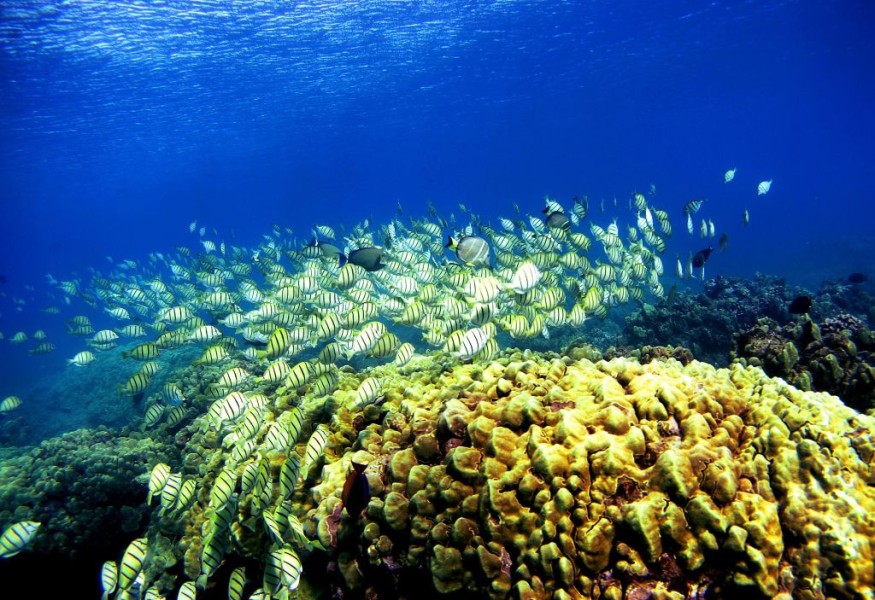
Growing ocean temperatures pose a significant challenge to the world's coral reefs, contributing to widespread bleaching events that have killed off large swaths of the oceanic populations.
However, some coral doesn't seem to mind the hot water that kills off its peers - researchers have found some corals can rebound from bleaching well before a heatwave finishes, meaning they can withstand lengthy heatwaves. They claim that some genetic quirk helped is helping the outliers escape the sun.
"That gives us a pathway to coral recovery that we wouldn't necessarily have imagined before," says Steve Palumbi, a marine ecologist at Stanford University. He is not involved in the research.
Standing out in hot water
Scientists at the Carnegie Institution for Science have discovered the gene responsible, Future Human reports. They propose gene-hack heat tolerance into the coral to keep reefs alive while climate change begins its path.
Before they could even probe coral's genetic code, the scientists failed to get their hands on the fertilized eggs - which coral releases in masse under complex water conditions after a full Moon - that they required for their CRISPR experiments.
That alone took many years, Potential Human reports. But with fertilized eggs in hand, the team was able to isolate that the gene HSF1 gave coral the capacity to withstand hotter water, according to reports reported in the journal PNAS. They claim that they might use CRISPR to seed coral reefs with eggs altered to bear the heat tolerance gene.
A remarkable aspect of the recovery is that brain coral started with heat-sensitive algae had a higher survival rate (82 percent) than the coral that began with heat-tolerant algae (25 percent), the team notes today in Nature Communications.
The discovery is shocking and "super-interesting," says Madeleine Van Oppen, a coral geneticist at the University of Melbourne, who was not associated with the work. The hope was that heat-tolerant algae would be best adapted for helping coral withstand a heatwave, Baum says.
But during a longer heatwave, it may be more beneficial, to begin with, a heat-sensitive alga, says lead author Danielle Claar, now a postdoc at the University of Washington, Seattle. That's how these algae provide the reef host with more calories than do heat-tolerant algae, thus supplying them with better resources to withstand bleaching.
Is it because of the water quality?
The selection of the algal partner could affect the consistency of water. Because heat-tolerant algae often appear to be more immune to stress in general, they may help coral live in contaminated water. The corals with high - temperature algae on Kiritimati appear to be near broad villages where accumulated sediments, waste, and other forms of pollutants are present in the water.
The more remote areas of the reef have cleaner water, and corals with heat-sensitive algae are more likely to survive there. In addition to more energy reserves, there might be more powerful immune systems or other reasons for coral surviving in healthier water, the team reports.
There has been some controversy over whether a reef's capacity to withstand heatwaves is compromised by local factors, such as contamination and overfishing, Baum says. Some scholars have concluded that local factors do not apply. "This paper clearly shows that at least for these corals in this location, the argument is false," Knowlton says. "In fact, healthy local conditions are essential for the survival of corals."
Is coral bleaching illegal?
The concern is that, under Australian rule, which forbids CRISPR, the scientists' proposal will be unconstitutional.
"Their release into the environment would, very properly, face rigorous regulatory and public scrutiny," coral geneticist Madeleine van Oppen, who didn't work on the study, said in an accompanying PNAS commentary.
ALSO READ : Ireland to Plant Over 400 Million Trees By 2040
Check out more news and information on Climate Change on Science Times.
© 2025 ScienceTimes.com All rights reserved. Do not reproduce without permission. The window to the world of Science Times.










